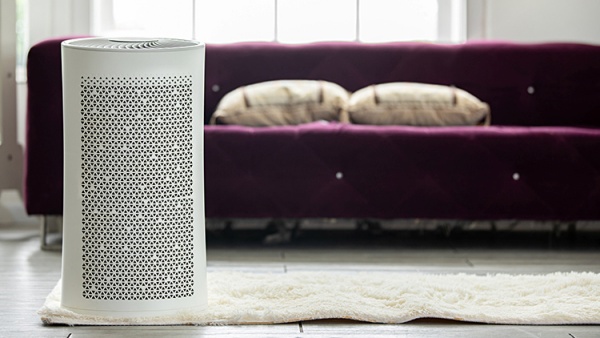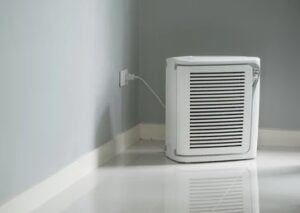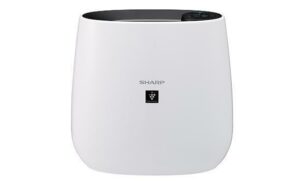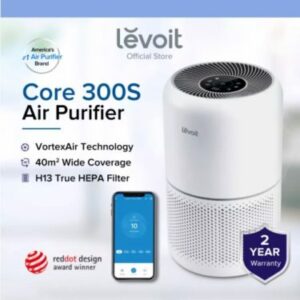
Do Air Purifiers Use a lot of Electricity?
Do air purifiers use a lot of Electricity? You may be wondering if you are thinking about buying an air purifier or if you already have one. The answer is it depends on the model. Some use more than others, but generally, they use less Electricity than a vacuum cleaner. So, before you buy an air purifier, be sure to do your research to find one that uses less Electricity. And if you have one already, see how you can reduce its energy consumption, so it doesn’t use as much power.
Do You Need an Air Purifier?
Indoor air quality is essential for your health and well-being. Dust, pollen, mould spores, and other allergens can cause various respiratory problems, including asthma attacks and allergic reactions. High humidity levels can also lead to mould and mildew growth, which can also cause health problems. One way to improve indoor air quality is to use an air purifier. Air purifiers trap pollutants in a filter, allowing only clean air to circulate. In addition to an air purifier, you may also need a dehumidifier to keep humidity levels in check. By taking steps to improve indoor air quality, you can help create a healthy and comfortable environment for yourself and your family.
Air purifiers are a great way to improve air quality in your home. They work by trapping airborne particles, such as dust, pollen, and pet dander, and removing them from the air. This can help to reduce allergies and asthma symptoms, as well as eliminate odours and fumes. Air purifiers are also more energy-efficient than air conditioners and fans, making them a cost-effective option for improving air quality. When choosing an air purifier, it is essential to select one that is the right size for your room and has a filter that can be replaced periodically.
Air Purifier Wattage

Air purifiers come in various shapes, sizes, and wattages. The average air purifier uses 50.2 watts when active, but some use as little as 8.2 watts while others use up to 130.8 watts. The dehumidifier and air purifier are the most common types of air purifiers, and both use about 50 watts when active. However, dehumidifiers tend to be larger and more expensive than air purifiers. If you’re looking for an air purifier that doesn’t use much energy, you might consider a compact model that uses less than 30 watts. On the other hand, if you have ample space to be kept clean, you might need an industrial-strength model that employs more than 100 watts. Whatever your needs, there’s an air purifier out there that will suit them.
Air Purifier Power Consumption
While it is true that some air purifiers can be pretty energy-intensive, others are very efficient. Some models use less Electricity than a standard light bulb. If you are concerned about energy consumption, look for an air purifier certified by Energy Star. These models are specifically designed to be energy-efficient and can help you save money on your electric bill. Additionally, many air purifiers have features that help reduce energy consumption, such as timers and sleep mode settings. By taking advantage of these features, you can ensure that your air purifier is only running when necessary.
Air Purifier Electric Consumption Table
Below is the average consumption of most air purifiers;
| Electricity consumption | Per hour | 24 hrs | Weekly (8rs per day) | Monthly (8rs per day) | Annually (8rs per day) |
|---|---|---|---|---|---|
| Average | 0.00056 kWh | 0.014 kWh | 0.032 kWh | 0.140 kWh | 1.648 kWh |
| Highest | 0.00197 kWh | 0.047 kWh | 0.110 kWh | 0.489 kWh | 5.752 kWh |
| Lowest | 0 kWh | 0 kWh | 0 kWh | 0 kWh | 0 kWh |
Clean Air Delivery Rate (CADR)

When looking for an air purifier, it is essential to look for one with a high clean air delivery rate (CADR). The CADR measures how well the air purifier removes contaminants from the air. The higher the CADR, the more the air purifier will remove impurities. The ASTM AHAM / ASTM AAAC-1-2002 has developed a standard for CADR measurements, and all air purifiers should comply with this standard. When comparing different air purifiers, you should not only look at the CADR but also at the filtration capacity. The filtration capacity will vary depending on the size of the room and the number of contaminants in the air. If you have a large room with many pollutants, you will need a more powerful air purifier than a small room with few pollutants. Choose an air purifier that suits your needs, and you’ll be sure to get clean fresh air.
CADR for Smoke
The average air purifier CADR (clean air delivery rate) for smoke is 4.4, with 2.5 being the most common.
CADR for Pollen
The CADR (Clean Air Delivery Rate) measures how effectively an air purifier can remove particulates from the air. The W rating (for pollen) indicates how well it can remove pollen precisely. The average air purifier CADR/W for pollen is 4.81, with 4.07 being the most common.
CADR for Dust
The air purifier CADR/W for dust is 4.44, with 2.59 being the most common. This means that air purifiers are very effective at removing dust from the air.
How Much Electricity Does an Air Purifier Consume?
How much Electricity does an air purifier consume?
The most significant factor in determining electricity consumption is the size of the unit. A small air purifier will use less Electricity than a large one. Another critical factor is how often the air purifier is used. If you use your air purifier constantly, it will use more Electricity than if you only turn it on occasionally.
Overall, air purifiers are not major energy hogs. If you’re concerned about saving energy, look for an air purifier with a low wattage rating. And remember, you can permanently save energy by turning off your air purifier when you’re not using it.
Air Purifier Brands
When selecting the air cleaner, energy usage must be considered. Air purifier costs depend on their power capacity. Air purifiers typically cost more than a high-efficiency units. Air purifiers utilizing faster airflow consume a lot of energy. Some models use more Electricity than a typical bulb, and some use less than half this amount. Air purification uses about 10 watts per unit of Electricity. Compare model options to find a cleaner with less power consumption and more fan speeds. Take into account how much power consumption the system will cost.
Energy Efficient Air Purifiers
Here are energy-efficient air purifiers that should help you in choosing! For more models with low power consumption, click here!
Sharp FPJ30LB Room Air Purifier

The FPJ30LB room air purifier delivers clean, healthy air with no issues, thanks to its advanced plasmacluster ions that minimize odours and some airborne germs. This model is an excellent option for an energy-efficient air purifier.
Levoit 3002 Smart Air Purifier

The Levoit 3002 Smart Air Purifier is one of the most efficient air purifiers on the market, using only 15 watts of power. Despite its low energy consumption, the air purifier can still deliver powerful air filtration, thanks to its three-stage system.
Conclusion: Air Purifiers
Are Air Purifiers Power-Heavy Devices? Depending on the particular air purifier in question, the answer to this question varies. Electricity consumption is lower for a tiny air purifier than for a large one. The frequency of usage of the air purifier is another important consideration. Although using your air purifier consistently may result in higher electricity consumption than using it sometimes, we nevertheless advise doing so. In general, air purifiers don’t use a lot of electricity. You should seek an air purifier with a low power rating if you care about conserving energy. Also keep in mind that by simply shutting off your air purifier while not in use, you may permanently save electricity.
When selecting an air purifier, it is essential to consider the amount of Electricity the unit consumes, so selecting one that suits your needs is necessary. Additionally, you can save energy by turning off your air purifier when you’re not using it. Some brands of air purifiers are more energy efficient than others, so be sure to do your research before making a purchase. Thanks for reading!
Last Updated on
- How to clean standing fan easily - September 24, 2022
- How Long Does a Fan Last? – Electric fan Maintenance Guide - September 23, 2022
- Can electric fans be left on 24 hours a day? - September 23, 2022
